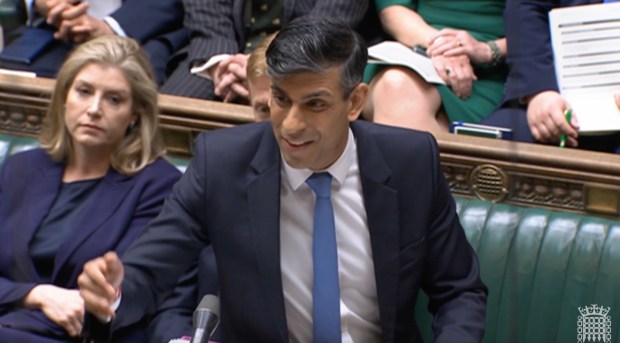The last time a Conservative government was in the midst of a crisis like partygate, Labour had a choice. Should it stick or twist? Should it passively allow Conservative voters, who had kept the party in power for more than decade, to drift away from John Major, thanks to his troubles over the economy, ‘sleaze’ and the EU, hoping they would remain with Labour come a general election? Or should it make a bold and positive case for why they could actively support Labour?
Both approaches held dangers. Under John Smith, Labour opted to let nature take its course. At the time, it was described as a ‘one more heave’ strategy. It had merit: the party was, after all, riding high in the polls and was about do well in both the 1994 European and local elections. Smith’s death however saw a decisive change of course: the new leader Tony Blair believed the party had to convince voters of Labour’s merits to prevent any return to the Conservatives, going so far as to announce it was now ‘New Labour’.
Today Keir Starmer faces something of a similar choice. For the first time in his two years as leader he looks secure. The Corbynites are fading away, retreating into their Twitter redoubts. More importantly, thanks to partygate exposing Boris Johnson as a pretend populist, Labour enjoys an unprecedented poll lead. This promises to see almost all of 2019’s lost Red Wall seats return to the party: these are places where Conservative thinker James Frayne believes voters’ ‘guiding value’ is ‘fairness’.
Thanks to his last reshuffle, Starmer now has a shadow cabinet team well-equipped to exploit Johnson’s troubles; the party’s media game has also improved in recent months. Under Rachel Reeves, in particular, Labour has come up with clever and popular policies like an energy windfall tax to nail the currently benighted government. But will this short-term focus be enough? The danger is that once Johnson goes and his successor caps energy prices and delays increases in National Insurance, voters will drift back to the Conservatives.
Such fears have led some Labour supporters to say that Starmer needs to complement this exploitation of a government adrift by outlining a coherent and attractive long-term vision for the country. To be fair to him, he has attempted this on a number of occasions. But thanks to Covid, Johnson’s apparently hegemonic lead, and his own muted rhetoric, Starmer largely failed to make an impact. Now, Johnson’s problems mean he has another chance to make a first impression.
He could do worse for inspiration than read Labour’s Covenant, produced by Labour Together, an organisation that is trying to unite members from across a divided party around a common programme. Much of what it proposes will, in fact, be familiar to Starmer. His speeches have argued that the country needs a new start, that the Covid crisis has lifted a veil on what needs to be done, and that Britain must embrace ‘a future that looks utterly unlike the past’. Starmer’s Labour seeks to build a Britain devoid of the inequality and insecurity which marked the last ten years or so, and which left the country unprepared for the pandemic and ill-equipped to face its economic legacy.
But Labour’s Covenant wants Starmer to go further. It calls on the Labour leader to build on his rhetoric to ensure that the social bonds weakened since the 2008 financial crash – and exposed by Brexit – are strengthened through a recalibrated role for the state and market. It also wants a new reciprocal relationship between government and society. If some of its ideas and proposals will be familiar to those who worked with Ed Miliband and Jeremy Corbyn it is also in effect calling on Starmer to do what Johnson promised in 2019: to Level Up. Thanks to partygate many voters are now coming to realise that, for Johnson, Levelling Up was just a neat phrase; words from a leader shown to have betrayed their trust.
Up to now, Starmer has struggled to find the words and concepts that convincingly define what his Labour party stands for. As Eric Morecambe might have put it, the Labour leader has been speaking all the right words, but not necessarily in the right order. This was partly because his intended audience wasn’t listening. It was also because many in his own party were intent on shouting him down. Thanks to Boris Johnson, however, he now has a platform to get his message right, and Labour’s Covenant can help him finesse that message, a message many Britons have been waiting for since at least 2008.
Got something to add? Join the discussion and comment below.
Get 10 issues for just $10
Subscribe to The Spectator Australia today for the next 10 magazine issues, plus full online access, for just $10.


















Comments
Don't miss out
Join the conversation with other Spectator Australia readers. Subscribe to leave a comment.
SUBSCRIBEAlready a subscriber? Log in